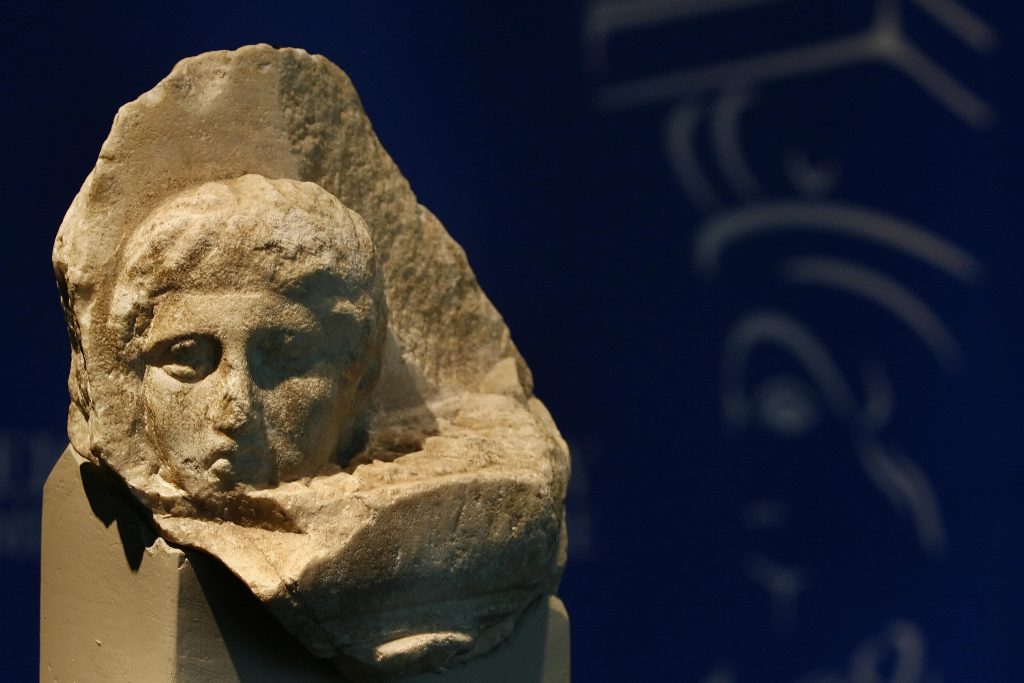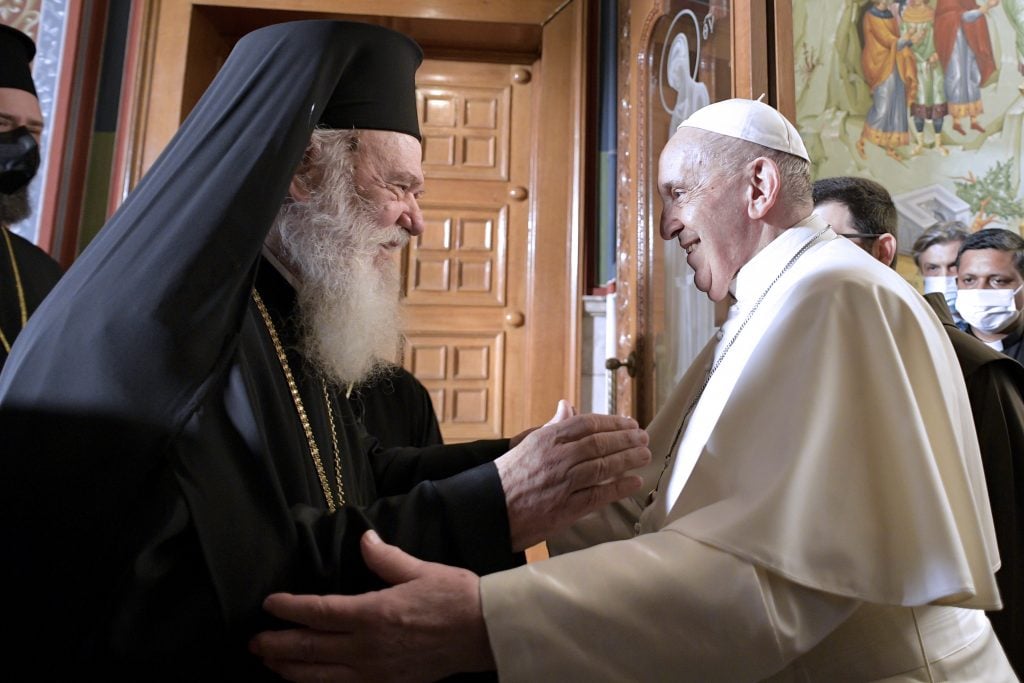Museums & Institutions
The Pope Has Ordered the Vatican to Return Three Parthenon Marble Fragments to Greece
The artifacts have been in the Holy See’s possession for two centuries.

The artifacts have been in the Holy See’s possession for two centuries.

Richard Whiddington

The Vatican Museums will return three Parthenon marbles to Greece following the order of Pope Francis on December 16.
The fragments—a horse’s head, a boy’s head, and a bearded man’s head—have been in the Holy See’s possession for two centuries, with the Vatican labeling the return “a donation” from Francis to the head of the Greek Orthodox Church, Archbishop Ieronymos II. It was, the statement said, “a concrete sign of his [Francis’] sincere desire to follow in the ecumenical path of truth.”
The Vatican’s statement clarified that the donation was a spiritually motivated gift between one church and another, and not a bilateral state-to-state return. The Vatican Museums, along with Western institutions more broadly, have come under pressure to return collection works acquired via colonial looting. The designation likely aims to avoid setting a precedent that could impact other priceless works in its possession.
Francis’s decision seems to be a direct consequence of his meeting with Ieronymos in Athens in late 2021. During the visit, the pope publicly acknowledged the mistakes of the Catholic Church in dealing with Greek Orthodox communities and took a nighttime tour of the Parthenon. The Pope made another ecumenical gesture in 2019 when he gave Bartholomew I of Constantinople a relic of St. Peter.

Pope Francis visits with Ieronymos II in Athens. Photo by Vatican Media via Getty Images.
The marbles are part of the decorative frieze that adorned the 2,500-year-old Parthenon, a masterpiece of classical architecture that endured heavy looting in the early 19th-century. Both the Acropolis Museum, purpose-built in 2009 to house the marbles, and the Greek Ministry of Culture and Sports expressed gratitude for the Vatican’s donation.
The move is renewing focus on the British Museum to return its sizable collection of Parthenon marbles, which were stolen by Lord Elgin in 1801 during his stint as ambassador to the Ottoman Empire before being sold to the trustees of the British Museum in 1816. It’s a longstanding debate that seemed to be drawing closer to a conclusion in December 2022 when George Osborne, chair of the British Museum, discussed the marbles with the Greek prime minister Kyriakos Mitsotakis in the latest in a series of secret meetings.
In a speech given after the meeting, Mitsotakis suggested an agreement between the two parties was possible. If a deal is struck, the marbles could return to Greece as soon as early 2023.
The Vatican Museums did not respond to a request for comment.
More Trending Stories:
The Art World Is Actually Not Very Creative About What It Values. What Would It Take to Change That?
Introducing the 2022 Burns Halperin Report
Click Here to See Our Latest Artnet Auctions, Live Now